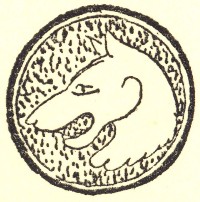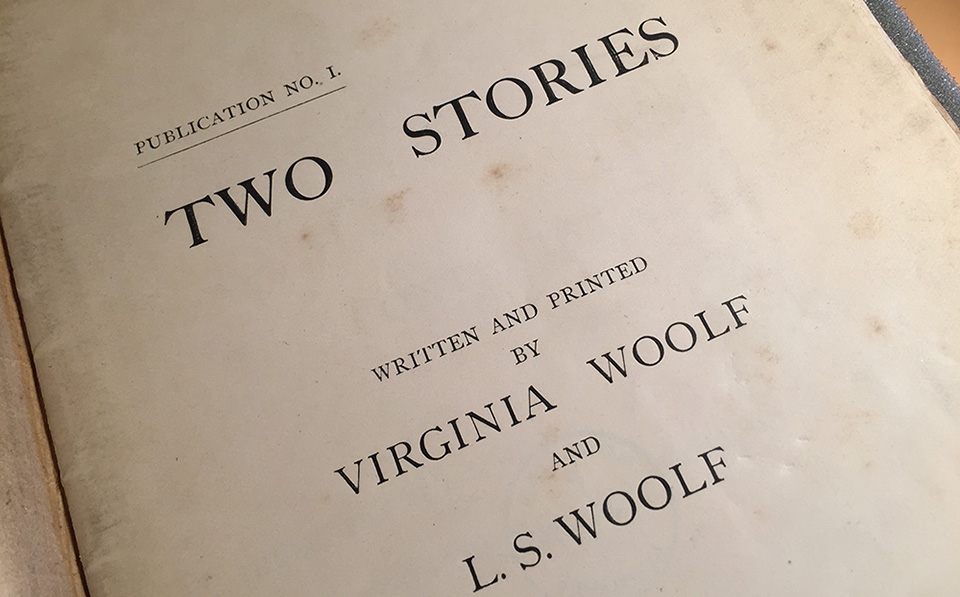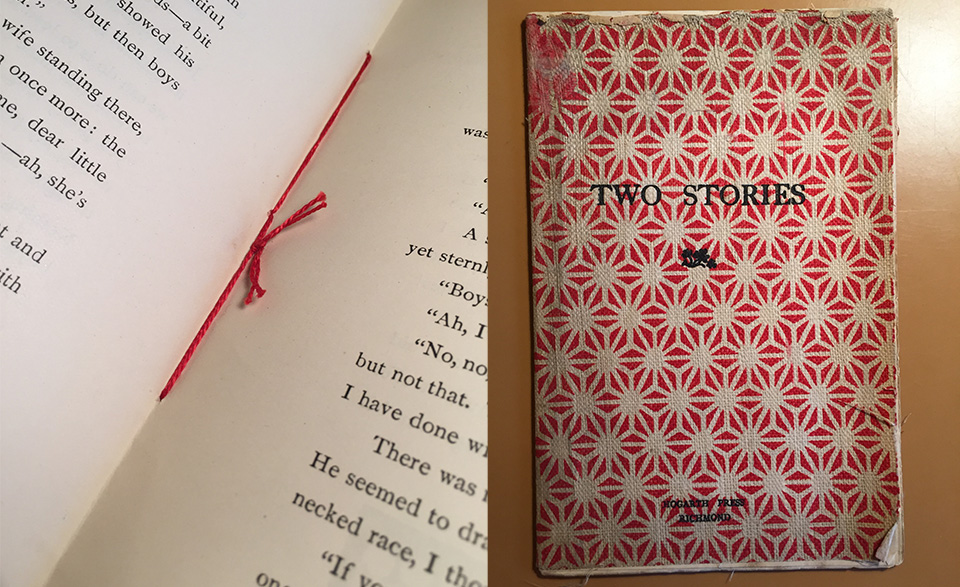- Home |
- Search Results |
- The History of Hogarth Press

Printing fever arrived at Hogarth House, Paradise Road, Richmond, in April 1917. ‘We get so absorbed we can’t stop; I see that real printing will devour one’s entire life,’ Virginia Woolf wrote to her sister.
Her husband, Leonard, wished they had never bought the ‘cursed’ hand-press as there was a serious risk he might ‘never do anything else’. The dining room was requisitioned for the machine. The couple were consumed and delighted by their new interest. Their hands were permanently stained with ink.
The first Hogarth Press publication was Two Stories. Bound in bright Japanese paper, it contained a story by Virginia, and one by Leonard, with illustrations by Dora Carrington. Virginia typeset and bound 134 copies, knotting them by hand in vivid red thread.

The History of Hogarth
1917: Hogarth Press publishes its first book, Two Stories, typeset, bound and printed by Virginia and Leonard Woolf at Hogarth House, Paradise Road, Richmond, Surrey.
1920s: The Press publishes T. S.Eliot’s The Waste Land and takes on the International Psycho-Analytical Library, becoming the English language publishers of Sigmund Freud.
1924: Hogarth Press moves from Richmond to the basement of 52 Tavistock Square, Bloomsbury.
1930s: Two notable Hogarth bestsellers and book club picks, The Edwardians by Vita Sackville-West (1930) and Flush by Virginia Woolf (1933), are published
1940: Hogarth Press relocates for a time outside of London at its regular printers in Letchworth Garden City, Hertfordshire, after 52 Tavistock Square takes a direct bomb hit during World War Two.
1941: Virginia Woolf dies
1946: The Press catalogue now numbers 527 books

1969: Leonard Woolf dies but the Press continues: Isaiah Berlin joins the catalogue and a Bloomsbury revival sees definitive editions of Virginia Woolf’s works produced, including diaries, letters and essays
1984: Under publisher Carmen Callil, Hogarth Paperbacks, an eclectic list of purple-spined paperbacks, are launched
1990: A new non-fiction hardback list is created, overseen by commissioning editors Andrew Motion and Jenny Uglow
2015: A new series, Hogarth Shakespeare, begins, in which contemporary novelists respond to their favourite Shakespeare plays
2017: Hogarth marks its centenary year with a new birthday publication of Two Stories, adding a new story by bestselling author Mark Haddon